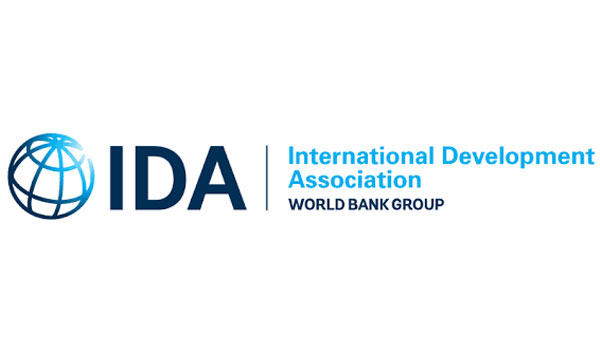
Radar | Nov 21,2018
Players in Ethiopia's fledgling private aviation industry are pleading for help, claiming unfair competition practices drives them out of business, further prolonging their recovery from the impacts of the COVID-19 pandemic that continues to decimate air passenger numbers.
With many airlines risk bankruptcy due to a fall in revenues and lack of financial support to remain afloat, the private carriers cite uninclusive regulation and a lack of access to hangars and runways as constricting factors behind their struggling ventures.
Over the last seven decades, aviation has been nearly nonexistent beyond the national carrier, the Ethiopian Airlines. It dominates the airlines market and flies to 22 domestic destinations across Ethiopia. The excessively protective aviation policies espoused by the Ethiopian Civil Aviation Authority (ECAA) have deprived the country of thriving aviation industry, unlike in neighbouring Kenya, where over 50 private aviation companies operate. There are eight private aviation firms in Ethiopia, with three more lined up to join.
National Airways & National Aviation College is one of these early entrants but grappling to remain in business. The change in passengers` behaviour following the COVID-19 pandemic, travel restrictions, and the ensuing economic crises have resulted in a dramatic drop in demand for air travel services, according to its CEO, Abera Lemi (Captain).
His company operates with five aircraft and more than 50 employees.
"Our existence hinges on the will of the authorities," Abera told Fortune.
The private carriers allege that a lack of hangar space is forcing them to take their planes abroad, mainly to Kenya and South Africa, for maintenance work, leaving them with large bills in foreign currency. Their plea before the authorities to be granted land to erect hangers remains unanswered.

"It's on hold by the Ministry of Transport," said Girma Gebre (captain), general manager of East African Aviation.
The Ministry, however, retorts that hangar space is out of its scope. The Ministry is a regulatory body, with no mandate to leasing the operators a hangar, according to Dagmawit Moges, minister of Transport.
Hangars are hardly the only problem as airport runways, too, seem to be hard to access for private aviators.
"They can restrict the runway when they feel like it," Abera told Fortune.
The private operators claim that the industry is also bogged down by the restrictions on the scope of work permitted for private carriers. They are not permitted to serve international services or domestic scheduled flights but chartered flights. However, recent legislation upped the passenger limit for private flights to 50.
A national aviation policy under development by the Authority is expected to offer new opportunities to private airlines, removing the restrictions on capacity and traffic rights on domestic and international routes, according to Endashaw Yegezu, director of economic regulation and strategic management at the Authority.
"We've recommended the Civil Aviation Authority to reconsider the restrictions on scheduled flights for private airlines in a way that will not affect the market," Dagmawit told Fortune.
The Authority is also keen to help the companies obtain soft loans and land for the hangar, Endashaw disclosed to Fortune.
Some, however, see the progress as moving too slowly. The industry is still deprived of the leverage to expand, according to Solomon Gizaw (Captain), founder and managing director of Abyssinian Flight Services.
Abyssinia Flights is a pioneer in charter flights, ambulance services, aerial photography, and filming and operates a private aviation academy with four aeroplanes and a helicopter.
His hard by the drastic drop in international travels, private aviators have resorted to cargo and air ambulance services. A patient might end up paying up to 200,000 Br for one of these emergency flights.
East African Aviation, which employs 11 people, adopts air ambulance services on an aircraft with three full-time doctors. The company ferries patients in severe conditions from places like Jigjiga, Jimma, and Somaliland to the capital.
PUBLISHED ON
May 23,2021 [ VOL
22 , NO
1099]

Radar | Nov 21,2018

Radar | Mar 02,2024

Radar | Sep 10,2021

Radar | Apr 02,2022

Fortune News | Apr 02,2022

Fortune News | Jul 11,2021

Fortune News | Nov 23,2019

Sponsored Contents | Apr 04,2022

Fortune News | Jun 01,2019

Featured | Oct 30,2021

Dec 22 , 2024 . By TIZITA SHEWAFERAW
Charged with transforming colossal state-owned enterprises into modern and competitiv...

Aug 18 , 2024 . By AKSAH ITALO
Although predictable Yonas Zerihun's job in the ride-hailing service is not immune to...

Jul 28 , 2024 . By TIZITA SHEWAFERAW
Unhabitual, perhaps too many, Samuel Gebreyohannes, 38, used to occasionally enjoy a couple of beers at breakfast. However, he recently swit...

Jul 13 , 2024 . By AKSAH ITALO
Investors who rely on tractors, trucks, and field vehicles for commuting, transporting commodities, and f...

Apr 20 , 2025
Mufariat Kamil, the minister of Labour & Skills, recently told Parliament that he...

Apr 13 , 2025
The federal government will soon require one year of national service from university...

Apr 6 , 2025
Last week, the International Finance Corporation (IFC), part of the World Bank Group...

Mar 30 , 2025
When the private satellite channel, Ethiopian Broadcasting Service (EBS), aired an em...